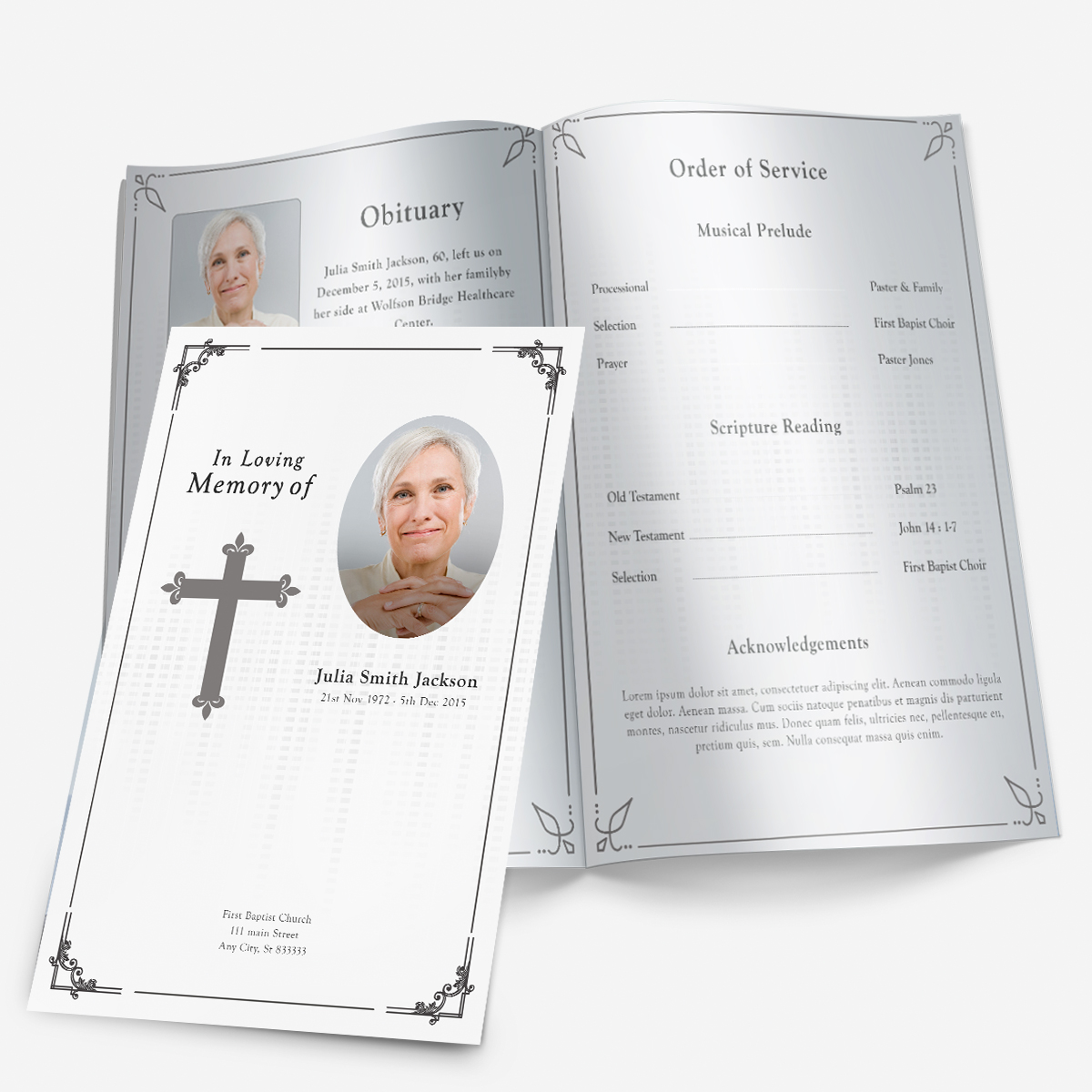The Importance of Funeral Cards: Honoring the Departed and Providing Comfort
Introduction:
Funeral cards, also known as memorial cards or remembrance cards, play a significant role in honoring the departed and providing comfort to grieving family members and friends. These small but meaningful keepsakes serve as a tangible reminder of a loved one’s life, allowing mourners to cherish their memory and find solace in shared remembrances. In this article, we will explore the importance of funeral cards, their significance in the grieving process, and how they offer comfort during a time of loss.
- Preserving the Memory:
Funeral cards serve as cherished mementos that preserve the memory of the departed. They typically feature a photo of the deceased, along with their name, birth and death dates, and sometimes a meaningful quote or verse. These cards become a tangible representation of their life, reminding loved ones of the impact they made and allowing their memory to live on.
- Personalized Tributes:
Funeral cards can be personalized to reflect the unique personality, interests, or beliefs of the departed. They provide an opportunity to share special memories, favorite quotes, or verses that hold significance to the individual. By customizing the design and content of the card, mourners can create a tribute that truly reflects and celebrates the life of their loved one.
- Comfort and Support:
During the grieving process, funeral cards offer comfort and support to those who have lost a loved one. Mourners can hold the card, gaze upon the photo, and read the heartfelt words written in honor of the departed. These tangible connections provide a sense of closeness, reminding mourners that their loved one’s presence and influence continue to exist in their hearts and memories.
- Commemorative Reminders:
Funeral cards serve as commemorative reminders of the funeral or memorial service. They often include details about the service, such as the location, date, and time, helping attendees remember and honor the event. Mourners can refer back to the card in the weeks, months, and years following the service, reflecting on the shared experience and the support received during a challenging time.
- Healing and Reflection:
Writing or receiving funeral cards can be a therapeutic and healing process. It allows mourners to express their emotions, memories, and love for the departed. In turn, receiving these cards provides solace and validates the significance of the loss. Reading the heartfelt messages and personal anecdotes shared in funeral cards offers moments of reflection, healing, and connection with others who have experienced a similar loss.
- Family Legacy and History:
Funeral cards contribute to a family’s legacy and history by documenting the lives of their loved ones. They become valuable pieces of family memorabilia that can be passed down through generations, preserving the memory of ancestors and providing future generations with a glimpse into their family’s heritage.
- Connection and Community:
Funeral cards help foster a sense of connection and community during the grieving process. They serve as a way for friends, family members, and acquaintances to show their support and offer condolences. By receiving these cards, mourners realize they are not alone in their grief, and the shared expressions of sympathy provide a sense of unity and understanding.
Conclusion:
Funeral cards hold immense importance in honoring the departed and providing comfort to grieving individuals. They preserve the memory of loved ones, offer personalized tributes, and serve as reminders of the funeral or memorial service. Funeral cards provide comfort, healing, and reflection, while also contributing to a family’s legacy and fostering a sense of connection and community. By recognizing the significance of funeral cards and embracing their role in the grieving process, we can offer solace and support to those who have experienced the loss of a loved one.

 Customization Services
Customization Services
 Photo
Retouching Services
Photo
Retouching Services
 Live
Support
Live
Support

